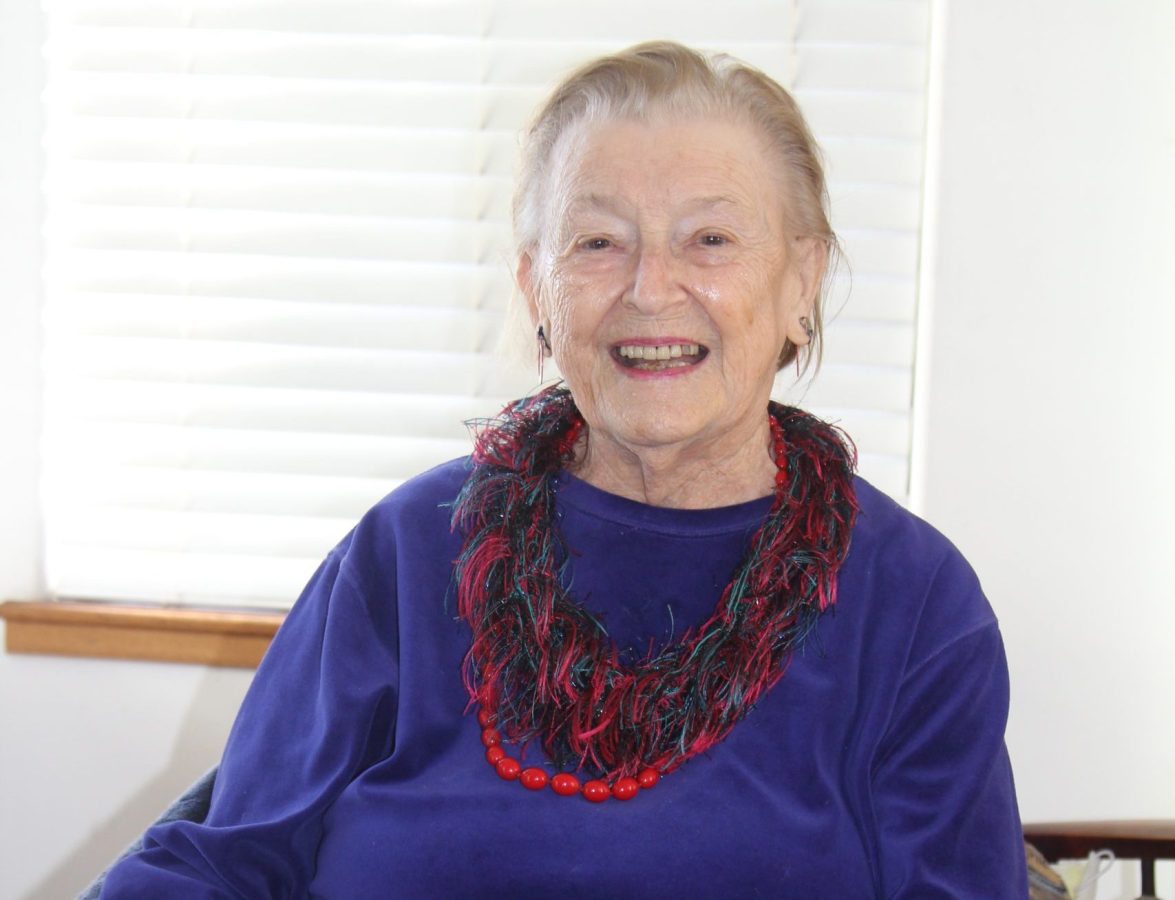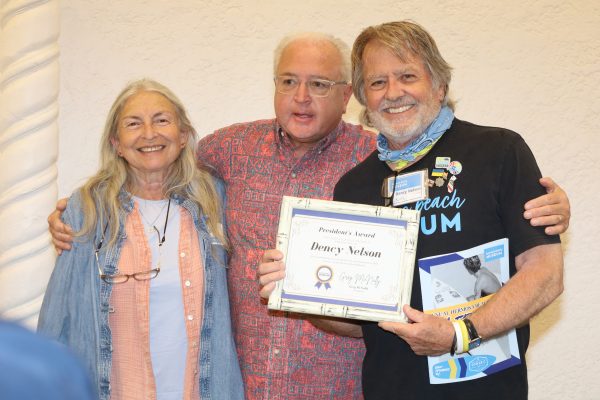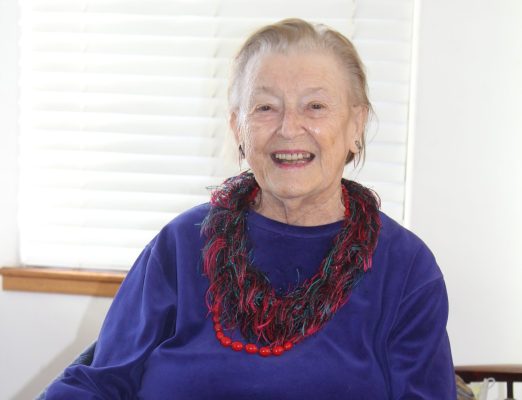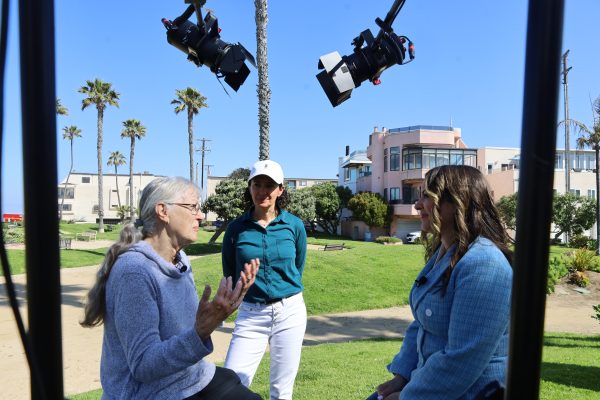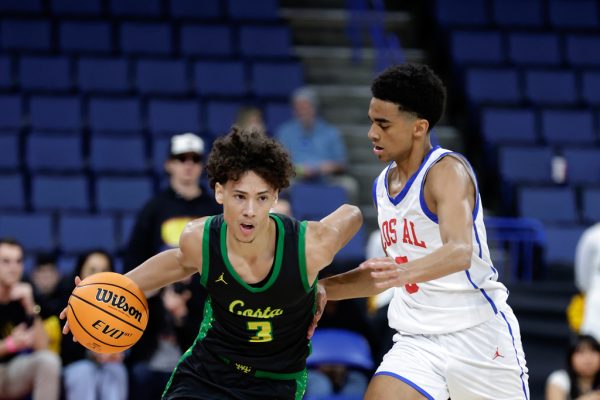by Garth Meyer
Esther Weber of Redondo Beach is 100 ¾.
A retired, longtime Redondo Beach school teacher, she first moved here in 1950. Her husband died when he was 97.
“A husband who made sure I wasn’t dating any other guy,” Weber said. “I was going with a fellow – a high school boyfriend, his parents were actors. I eventually met my husband at the tennis court. I was there with my Jewish girlfriend. He figured out what I liked to do. He made sure he had tickets for anything happening in the Cleveland area, so when my boyfriends wanted to take me out, I was always busy. The rascal.”
“You can use that idea when you’re just writing about somebody else.”
Esther joined the Redondo Beach Elks Lodge two years ago.
She told of turning 100 last June 23, marked by a family celebration at Riviera Mexican Cantina, the former site of Blue Moon Saloon.
“It came very quickly, I wasn’t expecting it, I wasn’t ready,” she said. “Because I’ve got lots of things to do. Now that it appeared, I’ve slowed down quite a bit.”
“I’ve always been interested in people,” she said.
“I can’t talk to you this week.”
She lives on Catalina Avenue.
Esther and her late husband, Jack, first came to Los Angeles when he represented Ohio in a national tennis tournament.
She later taught kindergarten at Riviera Elementary in Torrance, then sixth, seventh and eighth grade at Hillcrest School in Redondo Beach, followed by the majority of her career at Tulita Elementary. Jack taught P.E. at Hillcrest and South High School in Torrance, then ran the tennis program at Palos Verdes Tennis Club.
“I tried to talk my children into a simple family dinner [to mark her hundredth], but I know I should let this happen – for the sake of other people,” Esther said. “After my birthday, I (became) busy.”
Her daughter, Nansea, moved into the house last November, from Florida.
Mickey (Marrafino) Johnson, a friend of Esther’s daughter, Lorri, sponsored Weber to become an Elks member. Lorri joined at the same time.
“They’re a wonderful group. I knew the Elks in Ohio too,” Esther said.
That boy she was going out with back then, whose parents were actors, his name was James Kirkwood.
He went on to co-write “A Chorus Line.”
Esther was born in Cleveland, then lived in Elyria, Ohio, near the steel town of Lorrain, on the shores of Lake Erie.
Both of her parents were immigrants from Europe. Her father from Romania and mother from Hungary. They met in America. Esther’s maiden name was Hamula.
Nansea, her daughter, prepared lamb shanks in the kitchen Jan. 10. Esther was sick with a cold.
“Something is going around. I’m surprised there’s nothing in the papers. I’m not surprised, because of the fires,” she said. “People are not going to come to California to buy.”
She coughed, the cold still hanging around.
“I shouldn’t be talking to you,” she said. “If you don’t come out with a story, you’ll learn something. That’s the way I look at things.”
After a short time in Los Angeles, Jack and Esther moved to Helberta Street in Redondo Beach. Esther had worked in downtown L.A. as a secretary for the intelligence unit of the IRS, taking dictation on a Stenograph machine.
“They were always looking for people who had plans not to pay their taxes,” she said.
Weber was transferred from an IRS office in Ohio.
She began teaching in the late ‘50s, continuing until the early ‘90s. Esther then worked as a local substitute before fully retiring at age 70.
“I came home happy. I didn’t care what money I made,” she said of her job.
She and Jack’s three children were born in Hollywood and Torrance; Chip, Nansea and Lorri. Chip lives in Redondo Beach and Lorri lives in Carlsbad.
Weber has a Master’s degree in education. She has three grandchildren, the oldest is 33.
The condominium she lives in, her father built the original duplex on the site.
She and Jack were married in 1948.
“I have to laugh at the way we live nowadays,” she said, during a Feb. 3 follow-up interview, after a phone and T.V. problem marred the household for a couple days; cell service and the landline.
What was the first car her family had?
“We didn’t have a car,” she said. “Those were bleak times. Those years were very bleak. My dad was not working. My mother accepted laundry from the dentist in town who left his shirts.”
Esther had one brother.
She told of her father walking on train tracks to his eventual job, where he cleaned railroad cars, and had to crawl into a tank to scrape out rust.
“I didn’t hear my parents complain. Everyone in town is in the same situation, but we were able to cope,” she said.
Her father “did whatever he could get.”
Esther graduated from high school in 1942.
“I enjoyed learning something new. I’ve always been that way,” she said.
Today, sometimes it comes from the Easy Reader.
“I don’t keep all the old Easy Readers, of course.”
“I am very happy I am as healthy as I am. I know the Lord will take care of the future. I know the Lord is looking after me. He’s probably listening to us talk right now,” she laughed. “No, that would be impossible.”
“It makes a big difference, trusting in the Lord.”
Her parents met, and married at the Hungarian Baptist Church in Cleveland.
Who is Weber’s favorite president in her lifetime?
“Roosevelt jumps into mind, but I’m not sure why exactly,” she said. “… My parents, we couldn’t afford getting a newspaper. My parents were always interested in what was going on (World War II, etc.), they just couldn’t afford to buy a newspaper.”
Another question came. Esther thought for a moment.
“I feel like I’m in an egg beater,” she said – too much Q&A.
“I had a wonderful life. Still do. I’m happy. I feel sorry for you all. For all of us,” she said, referring to the state of the world. “Come on, go to a church; where you can believe in something beyond yourself.”
Jack was a WWII paratrooper, an Army Ranger, though Esther did not know him yet.
She laughed.
“I can’t help but laugh right now because that’s what my husband was. I’m sorry you didn’t know him,” she said. “I did not recognize his sweet method until I was married three or four years. He was so sly. Maybe I’ve given you an idea.”
Plans were made for a concluding interview.
“The sooner the better, so I can get rid of all my papers around here,” she said.
Redondo Beach city politics were on her mind, too.
“What a stupid election we just had.
It was supposed to be simpler. Oh phooey. A runoff, it would still be faster,” Weber said, referring to the Redondo debut of ranked-choice voting.
The first job she ever had came from a note sent out to her high school.
“After school, to answer the phone for a doctor. It paid 25 cents an hour,” Esther said. “I walked everywhere. We all did. It was a wonderful childhood.”
She told of traveling church conferences.
“That’s where I met my boyfriends.”
She said that every Sunday, when her mother took a nap, Esther and her father walked all around the city, and sat in the back row of a black church.
Then, on another day, she met Jack.
“I was with my Jewish girlfriend, her daddy owned the small neighborhood store at the top of the hill. She and I went to Lorraine, Ohio, to the beach. Across the street were tennis courts. It was a windy day,” she said. “We brought our tennis rackets and we went to the courts, and there were two boys playing at the far end. Everyone needed a drink of water. We met at the fountain.”
“The next day, a knock at the door, it was raining. He was there, as soon as I finished dinner.” ER

